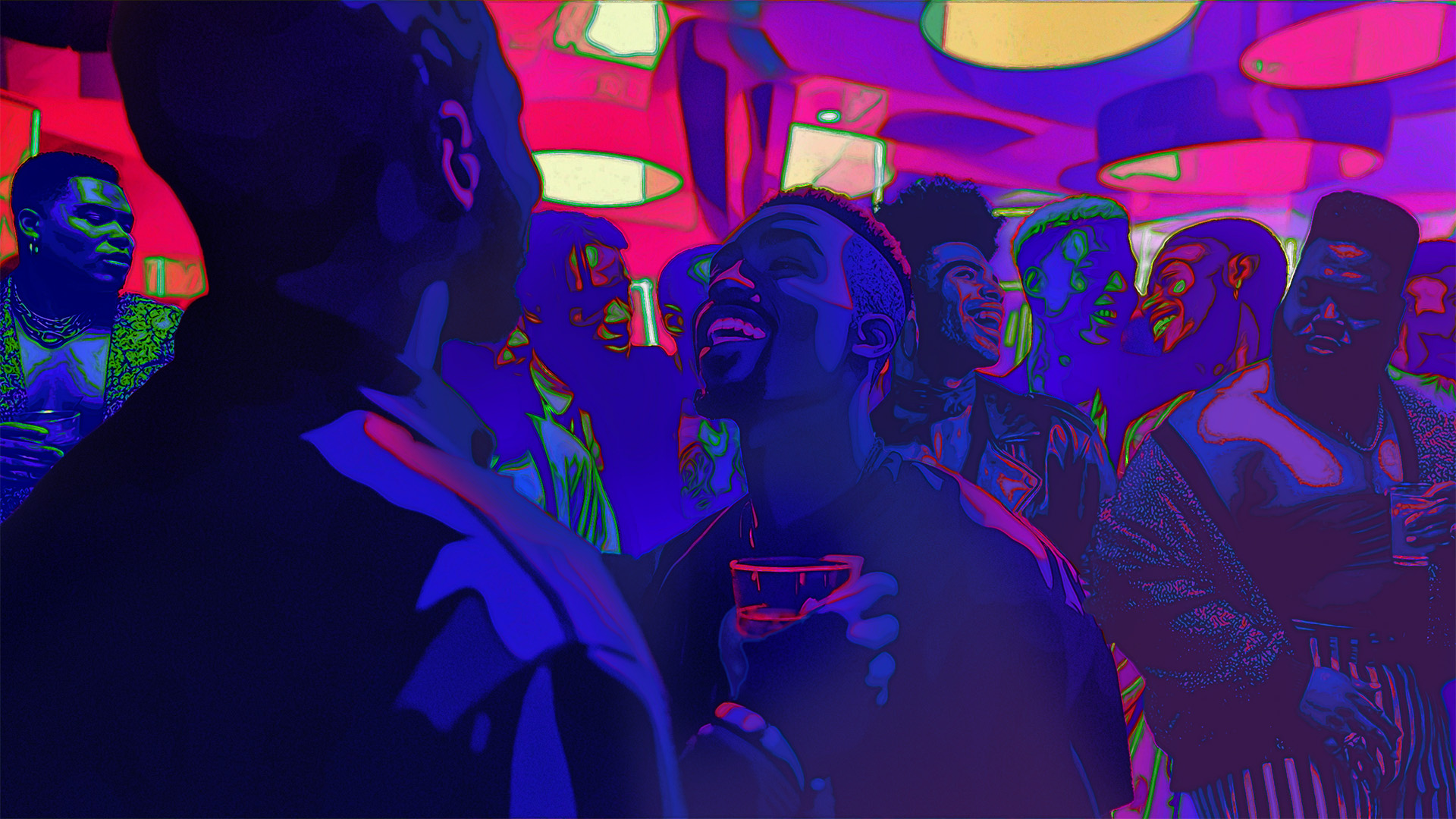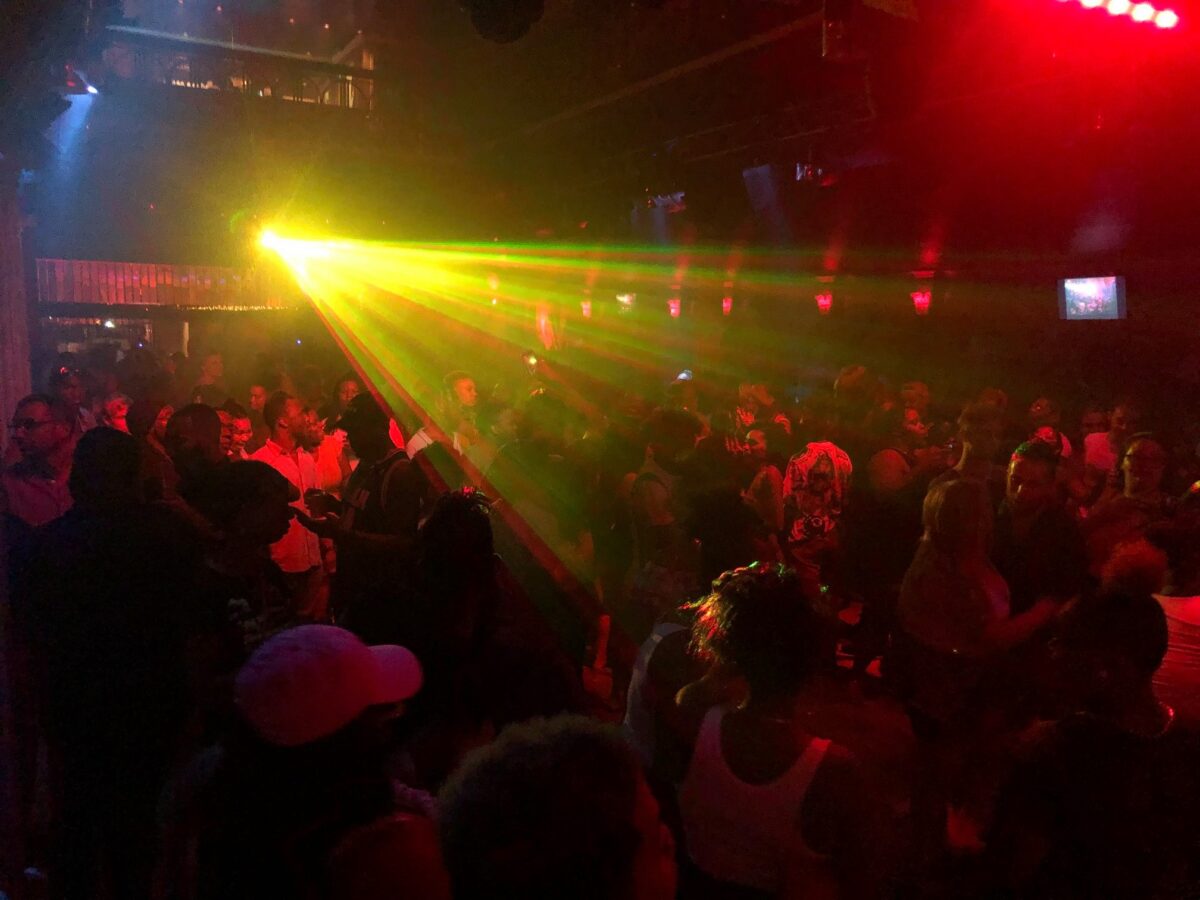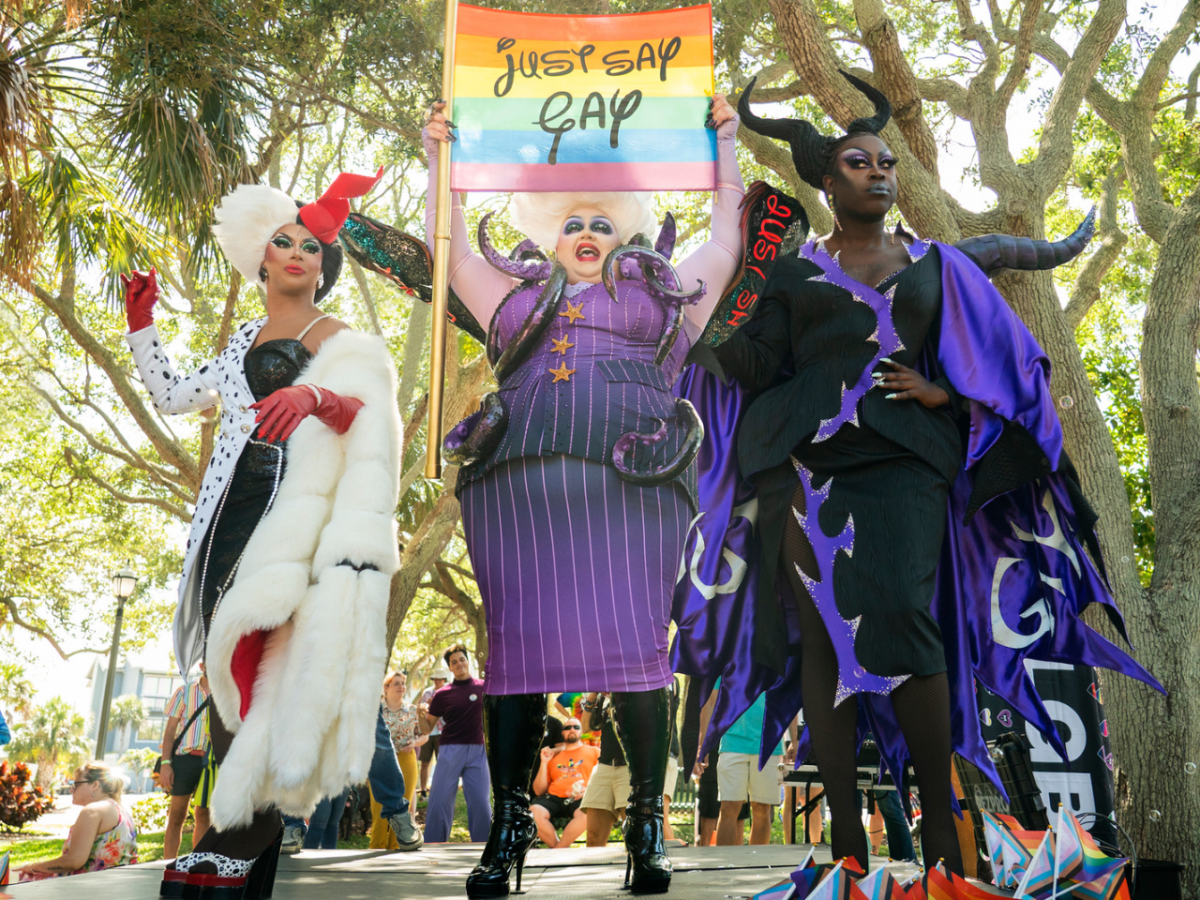Benedict College, a private historically Black college in Columbia, South Carolina, inaugurated its community education center at 1903 Two Notch Road just outside Columbia's downtown in 2011. At the time, local reporting from WIS-News 10 hailed the opening as part of an ongoing transformation of Two Notch Road, where, the reporting claimed, "Friday and Saturday nights […] used to mean drinking, drugs, hookers, and the occasional murder."
The unassuming one-story building at 1903 Two Notch Road, now painted in Benedict College's purple and gold, was a former Black gay bar. Closed in 2002, the Candy Shop was once the longest-running gay club in South Carolina's capital. Entrenched biases against the city's Black and LGBTQIA+ communities are implicit in WIS-News 10's reporting, according to Katharine Allen, director of outreach and engagement at nonprofit organization Historic Columbia. "This is how the Candy Shop is reflected in what has become the historical record," she said.
"The Candy Shop was the first place where I saw myself as a Black queer person fully being represented, and my culture as a Black person being centered."
More than two decades after the Candy Shop closed its doors, the researchers and preservationists at Historic Columbia have joined the struggle to correct the way the club has thus far been "written over" in the historical record. The preservation efforts continue to be led by the former performers and patrons who spent their weekends at the Candy Shop, beginning in 1976, when the bar opened under its original name, The Gay Delight Club. Through this work, the preservation coalition intends to honor the Candy Shop's significance and make a statement about the rootedness of queer histories in the American South amid the region's increasingly hostile, homophobic, and anti-trans political climate.
"The Candy Shop was the first place where I saw myself as a Black queer person fully being represented, and my culture as a Black person being centered," said Terrance Henderson, a Columbia-based artist and activist, who began frequenting the Candy Shop in the 1990s when he moved to the city to study musical theater and dance at the University of South Carolina. "If it weren't for the Candy Shop, there wouldn't have been safe spaces for me to have experienced that [and] express my own particular cultural experience as a queer Black gay Southerner."
During the 1990s, South Carolina's gay pride movement made significant strides into the public sphere. ACTUP demonstrated at South Carolina's State House in 1989. The action was the first for the New York City-based group outside of a major metropolitan area, and it led to dozens of arrests. Columbia held the state's first PRIDE March the following year, the South Carolina Gay and Lesbian Business Guild was formed in 1993, and local queer newsletters, such as The Triangle Times and In Unison, began publishing in 1990 and 1994, respectively.
During this time, the growing PRIDE movement in South Carolina and across the American South was predominately white, and many queer spaces remained de facto segregated. The Candy Shop emerged against this exclusion as an important site for Black queer folk who sought to carve out their own spaces.
"A lot of times, when Black people [went] to the clubs, they were treated differently. Sometimes, you would see all the white people on one side and all the Black people on the other side," said Sam Hunter, a former Candy Shop performer and show director who also performs as The Ebony Goddess Samantha Hunter. "So we said, 'Okay, we have our own place to go [at the Candy Shop]. We don't have to take this anymore.'"
A Love Letter to Black Queers in the Rural South
It's been nearly 40 years since the emergence of the HIV/AIDS pandemic in the U.S. For Black queer Southerners, too little has passed with the time.
Hunter represents an older generation of Candy Shop regulars who started frequenting the club in the late 1970s. The Candy Shop's owner scouted Hunter to perform at the club after Hunter became the first Black contestant to win Miss Gay South Carolina in 1979. Hunter worked as a show director for decades until the club closed in 2002. During that time, Hunter mentored dozens of young performers, including Columbia native Dorae Saunders, the trans drag star and America's Got Talent quarterfinalist who saw her first drag show at the Candy Shop in the mid-1980s.
"I knew then …this is something I'm going to be. I'm going to be good at this," Saunders told Robin Waites, executive director of Historic Columbia, in a 2021 oral history interview as part of the organization's LGBTQ Columbia History Initiative. Soon after Saunders saw her first drag show at the Candy Shop, she took to the club's stage herself, performing Miki Howard's "Baby Be Mine" and Pebbles' "Mercedes Boy."
Hunter said musical performances at the Candy Shop reflected the tastes of the Black community, featuring more soul music than was played at the city's other clubs. Another draw was the club's annual Mister Candy Shop and Miss Candy Shop pageants, which began in 1979. Contestants for the title of Mister Candy Shop competed in presentation, swimwear, and talent categories, while contestants for the Miss Candy Shop title competed in presentation, sportswear, evening gown, and talent categories. Hunter won the latter title in the pageant's third year.
While the Candy Shop never had the capacity of some of Columbia's other gay clubs—Hunter clarified, "If you got 50 people, that meant it was packed," and the dressing room could not accommodate any more than 10 people—its talent far outstripped its humble infrastructure. As the club developed a reputation for its premier entertainment and late hours, it also became a favorite destination for some non-Black community members. While clubs in downtown Columbia tended to close around 1 a.m., the Candy Shop offered two performances each evening, with the second performance starting at 2 a.m. When that show ended, "We would all pour out into the parking lot and for another hour or so, the club would kind of continue outside," recalled Henderson. "There was just so much life and community that would happen in those hours after the club."
"There's still a need for us to find each other. There's still a need for us to know that we exist, to know we're not alone, to know there are others like us."
The feelings of belonging, empowerment, and community that performers and patrons found at the Candy Shop are what those involved in the club's commemoration hope to rekindle through their work. Henderson said doing so is significant now, as legislators pass bills criminalizing gender-affirming care, prohibiting discussions about LGBTQIA+ identity in schools, and banning some youth-oriented PRIDE events, such as those featuring drag queens. "There's still a need for us to find each other," Henderson said. "There's still a need for us to know that we exist, to know we're not alone, to know there are others like us."
Historic Columbia has contributed to early efforts to commemorate the Candy Shop through its LGBTQ Columbia History Initiative. This project included collecting dozens of oral histories and creating a database and online interactive map of hundreds of LGBTQIA+ spaces and events around Columbia and Richland County. The club is featured on Historic Columbia's "We're Here!" interactive map. Researchers also produced a long-form interactive story about female impersonators on the city's minstrel and vaudeville stages in the late 19th and early 20th centuries. These performers' shows were precursors to those the Candy Shop would stage decades later.
The "We're Here!" map includes extant buildings and those lost to redevelopment across Columbia, especially in recent decades. "You just cannot overstate the importance [of this historical research]. There are places that I think we would have been able to advocate for had we known this history existed," said Allen. "We're trying to save what's left and point out the significance."
RELATED: pop justice
We're Queer, 'We're Here,' and We're Fighting Back
The show's account of Florida's neo-Nazis and proto-fascists are sickening—and not in the fabulous drag way.
While the building at 1903 Two Notch Road has been renovated since its heyday as the Candy Shop, Henderson believes it is still important to commemorate the club on-site. He hopes to do so through a live installation featuring archival film and images from the Candy Shop and performances of spoken word, dance, and music inspired by the club and the communities it fostered. "The objective would be to contact and communicate with as many folks who have connections to the Candy Shop as possible that are still local and make it a bit of a reunion of sorts [and] to honor some of the work of the folks who have paved the way," he said.
For Allen, there is something special about gathering in historic spaces. "Even if they've changed and they're not functioning in that same capacity anymore, there's still an opportunity to have that little bit of magic and that concrete reminder of these [important] things that have happened," she said. Organizers invested in honoring the Candy Shop's legacy are also discussing creating a documentary film featuring the club.
Each of these projects are meant to push back against a whitewashed, queerphobic, and transphobic historical record, which relegates many stories about the Candy Shop, the communities that frequented it, and others like them to the margins or even the crime blotter. Commemoration is also meant to speak to a young generation of LGBTQIA+ South Carolinians, letting them know that today's struggles have long histories, their queer elders are standing with them, and they belong.
"I think occupying space sends a message," said Henderson. '"We're here, and we're members of this community."



